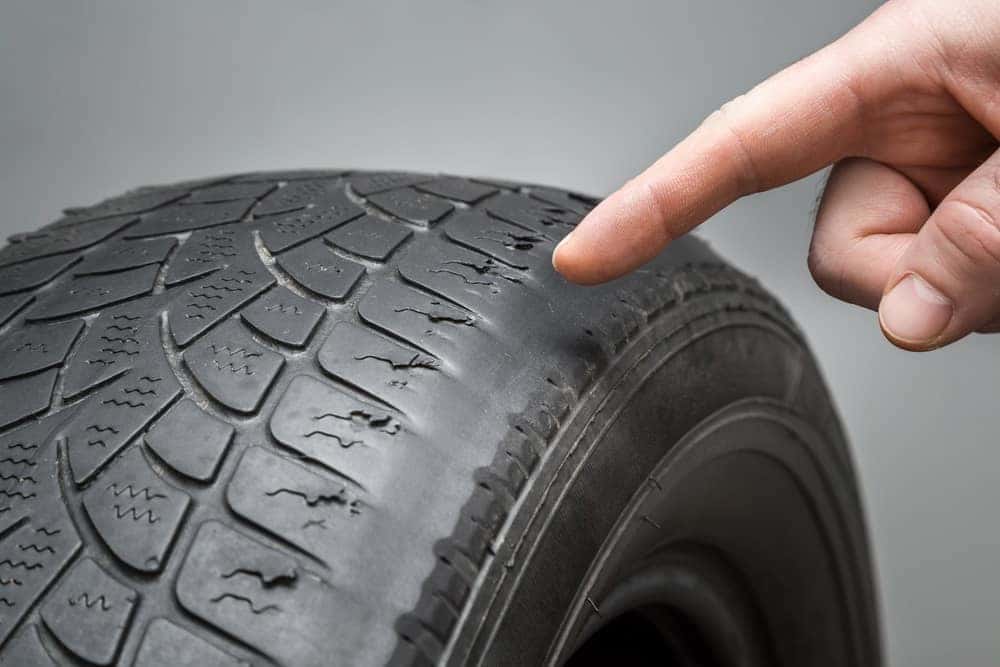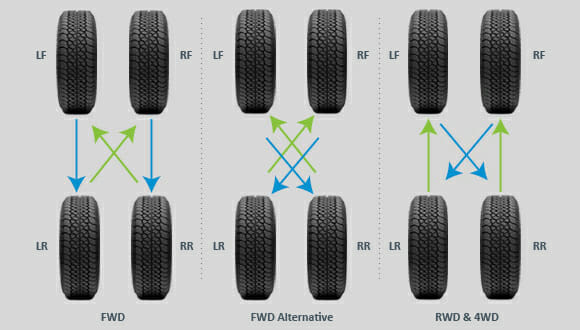How Often Do I Need to Get My Tires Rotated
If you own a car, it’s important to know how often to get your tires rotated. Depending on the type of car you have and how you drive, the frequency can vary. However, most mechanics generally recommend getting your tires rotated every 5,000 miles or so.
This may seem like a lot, but it’s actually not that difficult to do if you keep up with regular maintenance. Plus, it’s much cheaper than having to buy new tires prematurely. So, if you want to save some money and extend the life of your tires, be sure to get them rotated regularly!
How Often Do I Need to Get My Tires Rotated?Tire rotation is important for maintaining even wear on all four tires, and helps to prevent premature tire tread wear. Depending on your vehicle and driving habits, most manufacturers recommend having your tires rotated every 5,000 to 8,000 miles.
If you do a lot of stop-and-go city driving, or if you frequently haul heavy loads, you may need to get your tires rotated more often. Conversely, if you mostly drive on the highway at consistent speeds, you may be able to go a bit longer between rotations.It’s generally best to follow the manufacturer’s recommendation for tire rotation frequency.
However, if you’re unsure how often to rotate your tires, just ask your trusted mechanic – they’ll be happy to advise you based on your specific vehicle and driving habits.
How often should I rotate my tires? by Rydell Service Grand Forks ND
How Long is a Tire Rotation Good For?
A tire rotation is when you change the position of your tires. The front tires are moved to the back and vice versa. This helps to even out the wear and tear on your tires, making them last longer.
Most manufacturers recommend having a tire rotation every 5,000 miles or so.
Is It Ok to Rotate Tires Every 10000 Miles?
It is not necessary to rotate your tires every 10,000 miles. However, it is a good idea to do so if you notice any uneven tread wear or if your vehicle begins to vibrate. Uneven tread wear can be caused by many factors, including incorrect tire pressure, misalignment, or even a bent rim.
If you notice any of these issues, have your vehicle inspected by a professional as soon as possible.
Do Tires Actually Need to Be Rotated?
Tire rotation is the practice of moving the wheels and tires of a vehicle from one position to another, to ensure even wear on all tires. Many automakers include tire rotation in their recommended maintenance schedules, but some drivers are unsure if it’s really necessary.The main reason to rotate your tires is to promote even tread wear.
Over time, the weight of your car causes the tread in the center of the tire to wear down faster than the tread on the sides. This can lead to premature balding and decreased traction, especially in wet or icy conditions.Rotating your tires periodically helps prevent this uneven wear by moving each tire to a different position on the vehicle.
This spreads out the wear and tear, so each tire lasts longer and performs better. In addition, rotating your tires can help you spot potential problems early on, before they cause serious damage or become unsafe.So, do tires actually need to be rotated?
The short answer is yes – it’s best practice to rotate your tires every few months or according to your manufacturer’s recommendations. Doing so will prolong their life and improve your safety on the road.
How Long Will Tires Last If Not Rotated?
Most passenger car tires can last anywhere from 25,000 to 50,000 miles before they need to be replaced. However, this range can vary depending on the type of tire, driving habits, and roads driven on. Tires typically last longer when they are regularly rotated and properly inflated.
Tire rotation is important because it helps ensure that all four tires wear evenly. When one tire consistently bears more of the weight of the vehicle than the others, it will start to show signs of wear sooner. This can lead to premature tread wear and decreased fuel efficiency.
Rotating your tires every 5,000 to 8,000 miles (or as specified in your owner’s manual) can help extend their lifespan. If you drive mostly on highways or smooth surfaces, your tires may last up to 60,000 miles before needing to be replaced. But if you frequently drive on rough roads or live in an area with a lot of potholes, your tires could start showing signs of wear after just 30,000 miles.
In addition to rotating your tires regularly, you should also have them aligned and balanced at least once a year. This will help prevent uneven tread wear and improve handling. Improperly aligned or unbalanced tires can also cause premature wearing of other parts such as shocks and suspension components.

Credit: www.myminiannapolis.com
How Long Does a Tire Rotation Take
As a car owner, it’s important to stay on top of your vehicle’s maintenance. One task that should be completed every few months is a tire rotation. This simple procedure can help extend the life of your tires and ensure even wear.
So how long does it take to rotate tires?The answer depends on a few factors, but in general, you can expect the process to take about 30 minutes. If you’re having all four tires rotated, the technician will first remove the front two tires and place them on the back axles.
They’ll then put the rear tires in the front position.If you only need two tires rotated, the process will be even quicker. The technician will simply remove the chosen tires and switch their positions.
Once the new tire placement is complete, they’ll check that each tire is properly inflated and make any necessary adjustments. And that’s it! In just half an hour or less, your car will be ready to hit the road again with refreshed rubber.
Tire Rotation near Me
If you’re looking for a tire rotation near you, there are a few things to keep in mind. First, most auto shops will provide this service, but it’s always best to call ahead and make sure they can do it for your specific vehicle. Second, tire rotations typically cost between $20 and $50, depending on the shop and your location.
Finally, be sure to ask about any other services that may be included in the price of the tire rotation, such as an alignment check or balance.
How Often Should I Get My Tires Rotated And Balanced
If you’re like most drivers, you probably don’t think much about your tires. But they play a critical role in keeping you safe on the road. That’s why it’s important to keep them properly inflated and in good condition.
One of the best ways to do that is to have them rotated and balanced regularly. But how often should you do this?The answer isn’t as simple as it might seem.
It depends on a number of factors, including the type of vehicle you drive, how many miles you drive each year, and even the conditions where you live and drive.Here’s a general guideline: Most manufacturers recommend having your tires rotated and balanced every 5,000 to 7,500 miles. If you drive fewer than 5,000 miles per year or if you live in an area with mostly good roads, you can probably get by with having your tires rotated every 6 months or so.
But if you drive more than 7,500 miles per year or if you live in an area with rougher roads, then it’s a good idea to have your tires rotated and balanced more frequently – perhaps every 3 months or so. And if you frequently drive in adverse conditions (heavy traffic, bad weather), then it’s even more important to have your tires serviced regularly.No matter how often you have your tires rotated and balanced, be sure to check their condition regularly – at least once a month – and inflate them according to the manufacturer’s recommendations.
Doing these things will help keep your tires in good shape and improve your safety on the road.
Conclusion
If you’re wondering how often to get your tires rotated, the answer is every 6 months or 6,000 miles, whichever comes first. Of course, this varies depending on the type of vehicle you drive and the condition of your roads. But in general, it’s a good idea to get your tires rotated every 6 months or so to ensure even wear and tear.


